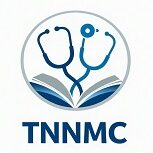Travel nurses can earn up to $10,000 per week in certain markets, and their average annual salaries reach $103,893—substantially higher than staff nursing positions. I’ve worked as a travel nurse for the last decade and experienced the ups and downs of this career path firsthand. Allow me to reveal the raw reality of this career path.
The financial perks are attractive, especially with tax-free stipends and generous reimbursements, but there’s more to think over. The nursing field is projected to grow 9% between 2020 and 2030, and travel nurses get benefits that go way beyond the higher pay. This lifestyle is a chance to pick assignments in a variety of healthcare settings and build diverse clinical experience. I’ve lived this reality for 10 years, and I can tell you it’s not just about the big paychecks and exciting destinations.
My Journey Into Travel Nursing
After working as a staff nurse for three years, I felt ready for a change. Most travel nursing agencies require at least one year of clinical experience. I wanted to build extra confidence before taking the leap. The nursing shortage created many opportunities, especially when you have underserved communities in both urban and rural locations.

From Staff Nurse to Travel Nurse
The transition required careful preparation. Before submitting my first application, I gathered:
- Updated nursing licenses and certifications
- Recent clinical experience documentation
- Professional references
- A well-organized documentation portfolio
I researched multiple agencies and compared their reputations, contract terms, and support services. Travel nurse assignments typically last between 13 and 26 weeks; therefore, I needed to choose the right partner for this experience.
First Assignment Challenges
My first contract brought unexpected hurdles. Travel nurses often receive minimal orientation—sometimes just a brief introduction to facility procedures. Quick adaptation to new systems and workflows without extensive training became my biggest challenge. Travel nurses must work independently soon after starting.
Housing proved another early challenge. Some agencies handle housing arrangements. I chose to manage my own accommodations to maximize my earnings, since travel nurse salaries can range from $458 to $6,419 weekly.
Learning the Ropes
Success strategies developed over time. Adaptability became my greatest asset because each new facility meant different protocols, documentation systems, and team dynamics. Travel nurses need certain qualities to thrive: independence, flexibility, and strong clinical skills.
This experience taught me self-reliance. Each challenge became an opportunity for growth rather than an obstacle. Travel nursing helped me expand my skills in different healthcare settings, especially in high-demand areas like ICU, medical-surgical, operating room, and emergency room nursing.
The Financial Reality of Travel Nursing
My latest pay stub shows how complex travel nursing compensation can be. A typical travel nurse contract averages $48.62 per hour. This base rate comes with stipends and reimbursements that affect your take-home pay by a lot.
Breaking Down a Real Travel Nurse Salary
My current compensation package has these components:
- Base hourly rate (taxable income)
- Housing stipend ($2,000-$3,000 monthly)
- Travel reimbursement ($500-$1,000 per contract)
- Meal and incidental allowances
- Agency fees (20-30% of contract value)
Hidden Costs Nobody Talks About
Many expenses caught me off guard when I started this journey. Most travel nurses should keep at least $3,000 in emergency funds ready. Licensing fees alone can range from $186 in Texas to $275 in Massachusetts.
The biggest shock came when I found out that reimbursements arrive after you pay the expenses. You need substantial savings before each assignment starts. The costs pile up fast with housing deposits, utility setup fees, and temporary accommodation expenses.
Smart Money Management Strategies
Experience taught me better financial strategies. I put aside 10-15% of every paycheck and keep separate accounts for emergencies and regular expenses. The 50-30-20 budgeting technique works well, especially when you split your money this way:
- 50% for essential expenses
- 30% for personal wants
- 20% for savings and debt repayment
Tax implications play a vital role in maximizing earnings. A tax professional helps me handle stipends and reimbursements properly, as these affect my overall compensation. On top of that, I learned to negotiate contracts based on total package value instead of hourly rate. I think over factors like housing costs and travel expenses at each location.
Building a Sustainable Travel Nurse Lifestyle
Living a green lifestyle as a travel nurse takes smart planning and good habits. My years on the road have taught me that being successful needs more than clinical skills and adaptability.
Creating Routines in New Places
Making life stable when everything changes has become my main goal. I’ve built a set of routines that go with me to each new assignment:
- Morning meditation or exercise
- Weekly meal prep sessions
- Virtual coffee dates with fellow travel nurses
- Regular exploration days in new cities
- Evening wind-down ritual
These habits help me stay grounded no matter where I am. My mental well-being and work performance have improved because I stick to these routines.
Maintaining Personal Relationships
People think long-distance relationships aren’t as stable as regular ones, but that’s not true. Strong relationships need smart planning and creative solutions. When we meet in person, making memories together helps keep our bonds strong.
I make time for video calls with family and friends and use FaceTime and Skype to do things together. Social media is a great way to stay close to loved ones between visits.
Work-Life Balance on the Road
Travel nurses face unique challenges when balancing work and personal time. Studies show that having clear lines between work and personal life makes people happier at work and mentally healthier.
Here’s my well-laid-out plan to keep this balance:
| Time Management | Self-Care Practices | Community Building |
|---|---|---|
| Set shift limits | Regular exercise | Join local groups |
| Schedule downtime | Adequate sleep | Connect with colleagues |
| Plan exploration days | Healthy meals | Attend community events |
Where you live plays a big part in work-life balance. A comfortable, stable home gives you the rest you need after long shifts and helps you feel settled. I look for places with short commutes to have more personal time and less stress.
Being a travel nurse is a chance to grow personally and become independent. Smart planning and steady habits have helped me create a lifestyle that lets me succeed at work and enjoy life while having adventures in my career.
Career Growth Through Travel Nursing
My experience shows that travel nursing gives you chances for professional growth that permanent positions can’t match. The pandemic has created even more options, as nurses today are less likely to stay with one employer long-term.
Skill Development Across Different Settings
My clinical expertise has grown through exposure to different healthcare environments. I’ve become proficient with various electronic medical record systems and specialized equipment. This flexibility is a great way to get experience, as travel nurses often help share best practices across facilities.
| Skill Development Areas | Effect on Career |
|---|---|
| Electronic Systems | Multiple EMR proficiencies |
| Equipment Mastery | Diverse technology exposure |
| Clinical Protocols | Cross-facility best practices |
| Crisis Management | Adaptability in new settings |
Building a Professional Network
I keep in touch with healthcare professionals nationwide. Social media has become crucial to stay connected with colleagues from previous assignments. Successful networking needs:
- Active participation in professional organizations and conferences
- Regular activity in healthcare-specific social media groups
- Strong relationships with permanent staff at each facility
- Digital platform connections
Leveraging Experience for Career Advancement
Travel nursing can lead to leadership roles. The pandemic has shown how travel nurses help share knowledge and develop best practices. My assignments let me participate in mass testing initiatives and vaccination programs, which expanded my skill set beyond traditional nursing roles.
Each assignment adds to my professional growth. Working at different locations and facilities pushes me to learn new skills. This constant learning has made me more resilient and adaptable—qualities that future employers value.
Knowledge sharing between facilities has been rewarding. My experiences from different assignments help me bring fresh viewpoints to each new workplace. This exchange of ideas and practices has boosted my career and helped the facilities where I’ve worked.
Navigating the Challenges of Long-Term Travel Nursing
My decade-long journey as a travel nurse has brought several big challenges that needed careful handling. All the same, learning to deal with these obstacles has helped me build better ways to cope.
Dealing with Burnout
Travel nursing can really wear you down. Research shows burnout affects one-third of registered nurses in the United States. High-stress environments and constant changes to new facilities create extra pressure for travel nurses.
These strategies help me curb burnout:
- Regular exercise and adequate sleep
- Setting clear work-life boundaries
- Building support networks in each location
- Taking time between assignments to recharge
- Maintaining consistent self-care routines
Managing Multiple State Licenses
Without doubt, managing multiple state licenses stands among the most complex parts of travel nursing. The Nurse Licensure Compact (NLC) lets nurses work in multiple states under one license. Right now, 33 states have fully implemented the NLC, while New Jersey keeps partial implementation.
| License Type | Requirements | Benefits |
|---|---|---|
| Single State | State-specific exam | Limited to one state |
| NLC Multi-State | Uniform requirements | Practice in all compact states |
| Individual State | Varies by location | Flexibility in non-compact states |
Housing and Relocation Strategies
Finding the right place to live remains one of our toughest challenges. Short-term housing options change substantially by location and assignment length. The lack of short-term rentals in busy metro areas often drives prices beyond reasonable stipend limits.
My experience shows that successful housing searches need:
- Starting the search at least 4-6 weeks before assignment starts
- Verifying safety and proximity to workplace
- Conducting virtual property tours
- Checking utility costs and included amenities
- Understanding lease terms and cancelation policies
Relocating every 13 weeks can significantly impact your finances. Each move comes with obvious costs like transportation and storage, plus hidden expenses such as setup fees and deposits. To name just one example, getting safe and comfortable housing often needs substantial upfront money, which can strain resources between assignments.
Success in travel nursing depends on careful preparation and staying flexible. Learning state requirements, creating strong support systems, and finding the quickest way to search for housing have helped me thrive in this career.
Conclusion
Looking back at my 10-year trip as a travel nurse, this career path has given me amazing opportunities and brought some tough challenges. The money is still great, especially when you have tax-free stipends and competitive pay rates, but you need solid planning, adaptability, and resilience to succeed.
My time on the road has shown me that travel nursing is way beyond just making good money. Each assignment has added new skills to my professional toolkit and helped me build a nationwide healthcare network. I’ve grown so much, both as a person and a nurse. Getting multiple state licenses and finding good housing can be tricky, but these challenges become easier with the right prep work and a good support system.
Not everyone finds travel nursing appealing. But nurses who welcome change, stay organized, and take care of themselves can build amazing careers here. After a decade on this path, I can say without doubt that travel nursing has made my life and career richer in ways a regular nursing job never could.
Anyone thinking about this path should weigh their situation, money goals, and career dreams before making the switch. Note that being great at nursing isn’t enough—you’ll also need emotional strength, money smarts, and knowing how to adapt quickly to new places.
FAQs
Q1. Is travel nursing financially worthwhile?
While travel nursing can offer higher pay rates, it’s important to consider the full financial picture. Travel nurses often need to maintain two households and may face unexpected costs. However, with careful budgeting and smart money management, many travel nurses find it financially rewarding, especially when factoring in tax-free stipends and reimbursements.
Q2. How does travel nursing impact work-life balance?
Travel nursing can offer a unique work-life balance. It provides opportunities to explore new places and take extended breaks between assignments. However, it can also be challenging to maintain personal relationships and establish routines. Successful travel nurses often develop strategies to create stability amid constant change.
Q3. What are the career growth opportunities in travel nursing?
Travel nursing can significantly enhance your professional development. It exposes you to diverse healthcare settings, technologies, and practices. This variety can rapidly expand your skill set and make you a more versatile and adaptable nurse. Additionally, networking opportunities across various facilities can pave the way for future career advancements.
Q4. How do travel nurses handle the challenges of frequent relocation?
Frequent relocation is a significant aspect of travel nursing. Successful travel nurses develop efficient strategies for finding suitable housing, managing multiple state licenses, and adapting quickly to new work environments. While challenging, many find that these experiences contribute to personal growth and resilience.
Q5. What is the typical orientation process for travel nurses?
Travel nurses often receive minimal orientation, sometimes as little as a few hours to a couple of days. They are expected to adapt quickly and function independently soon after starting. This requires strong clinical skills, flexibility, and the ability to learn new systems and protocols rapidly. While challenging, many travel nurses find this aspect of the job rewarding as it pushes them to excel.



